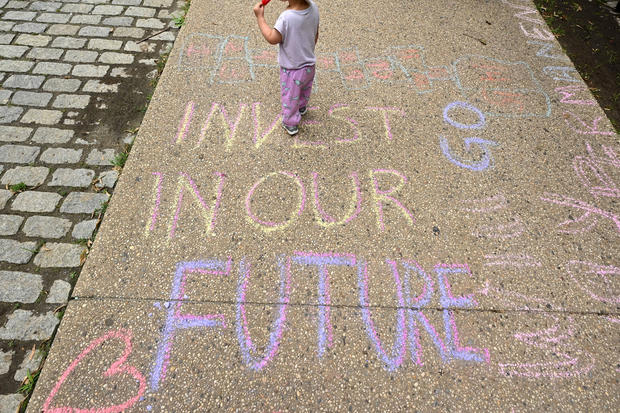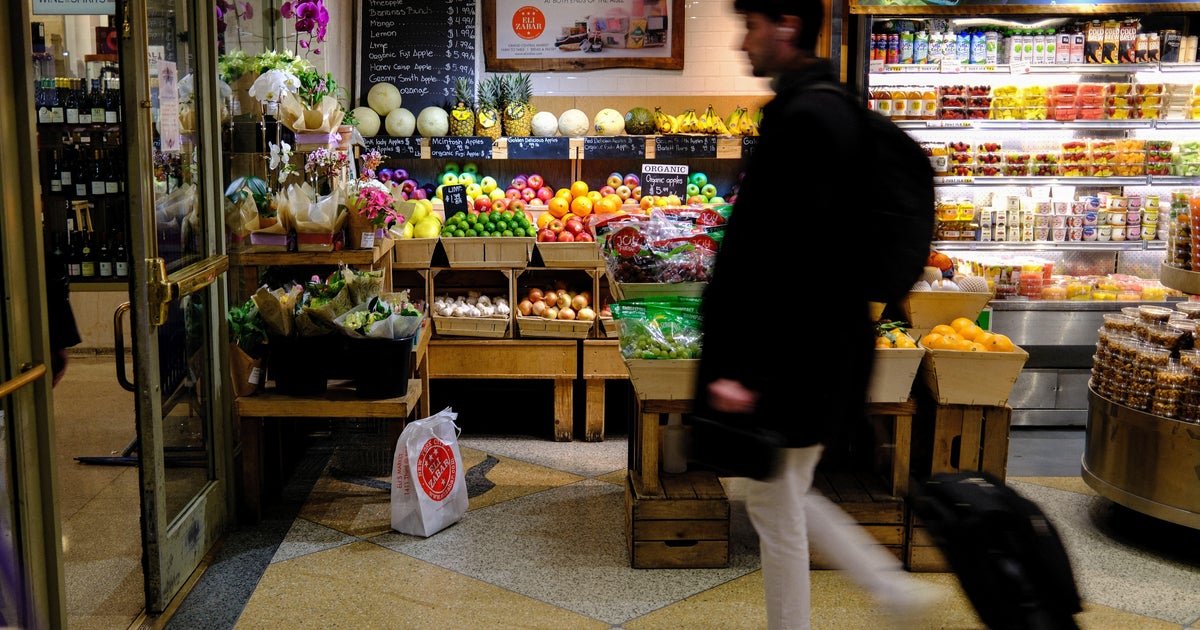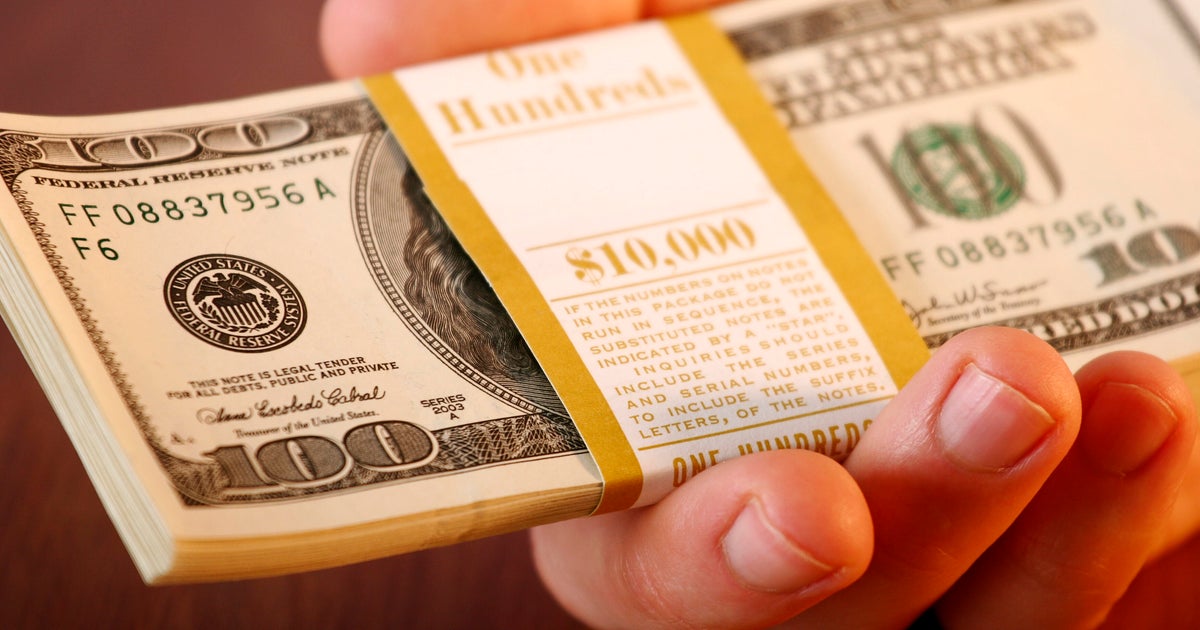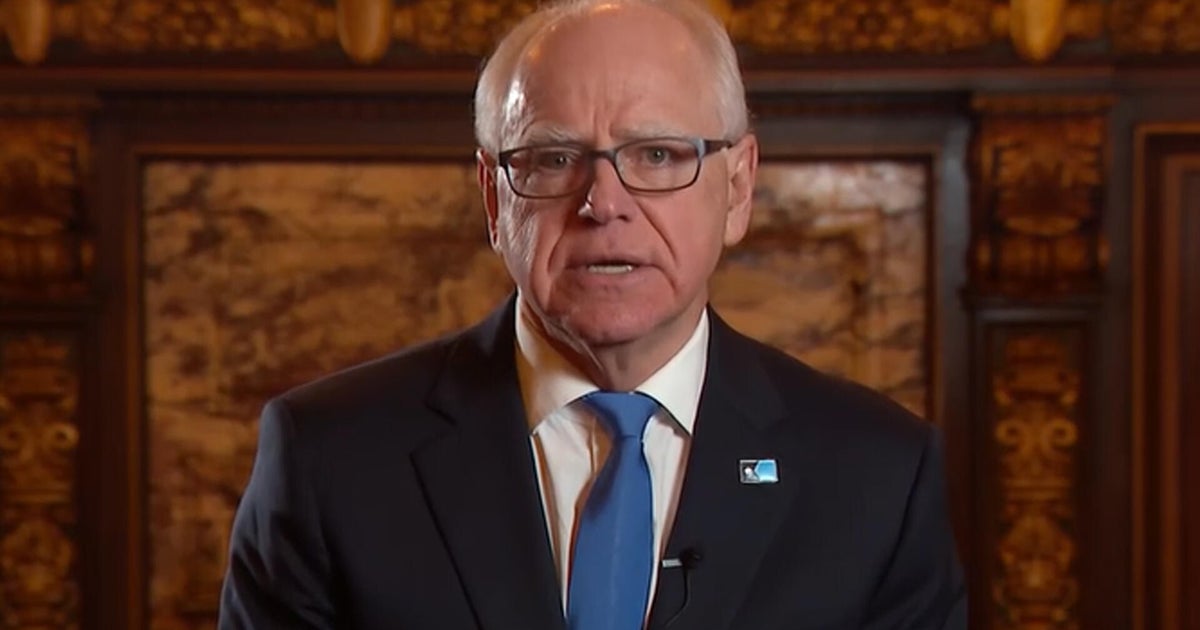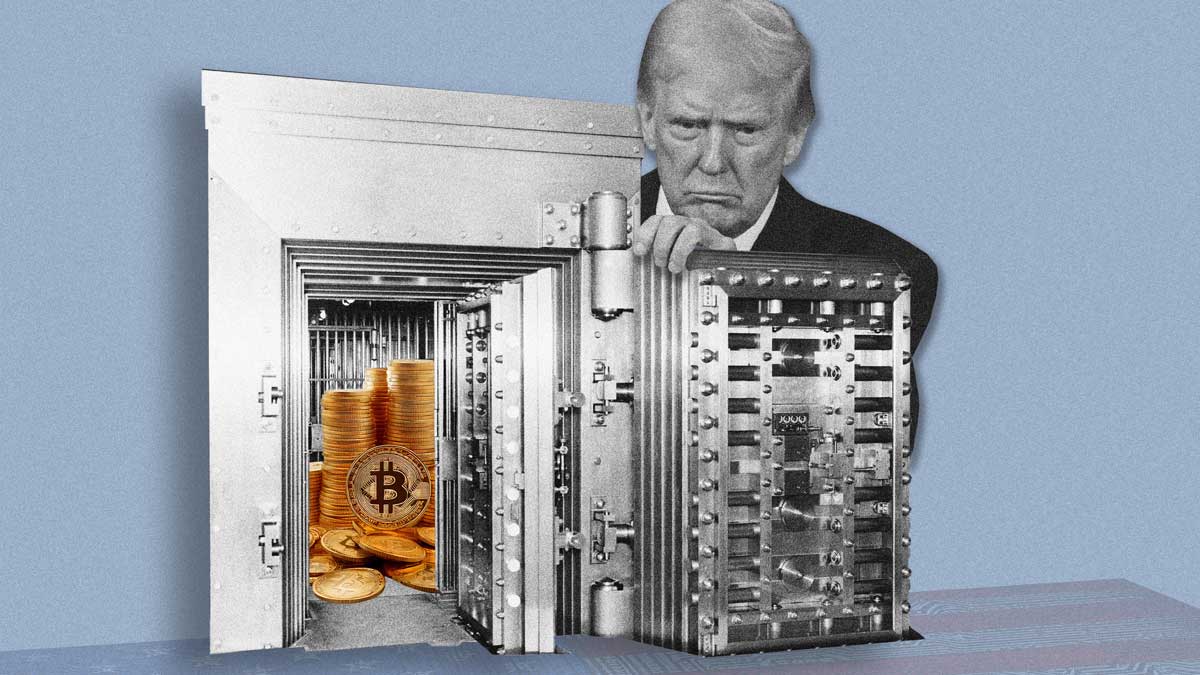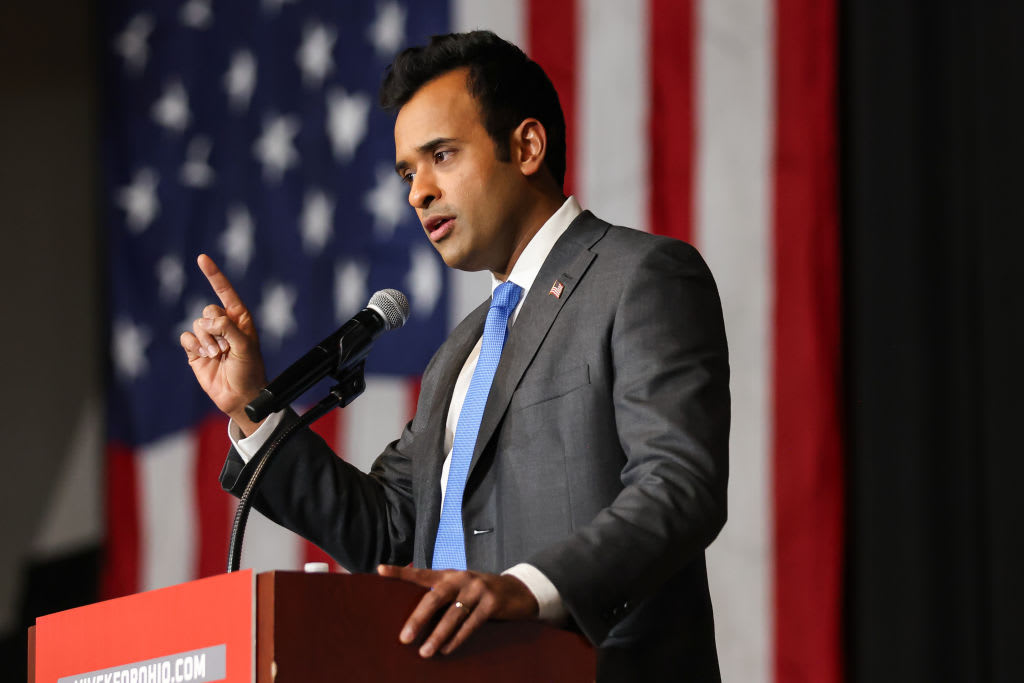Child Tax Credit 2021: Here's how families say they'll use "basic income for kids"
The parents of 60 million U.S. children on Thursday began receiving monthly checks through the expanded federal Child Tax Credit, a historic relief measure geared toward families of modest means. The money is sorely needed given the ongoing financial stresses from the pandemic, some parents told CBS MoneyWatch.
How people might use the funds has sparked debate, with some critics calling it a "middle-class boondoggle" or worrying that it might discourage low-income parents from seeking work. Proponents say the measure is essential at a time households face rising prices on groceries, gas and other necessities as well as the lingering financial impact of the pandemic.
Seven parents who spoke with CBS MoneyWatch said they plan to spend the money on goods and services for their children, ranging from back-to-school supplies to extras like gymnastics classes for a teenager with aspirations of joining her high school cheerleading team. Many also expressed hope that the monthly payments would continue beyond December, when the last check is due to hit accounts.
"Right now, I was in a desperate situation, wondering would I get his back-to-school stuff or food," said India Hatcher, 37, a police dispatcher who lives in Atlanta and is receiving $250 per month under the CTC for her 11-year-old son. "I can get his uniforms, his supplies and it helps — it's not a million dollars, but for some people, like myself, that doesn't have anybody, it's very helpful."
The IRS said it sent out $15 billion in CTC checks on Thursday, with almost 9 of 10 of the payments directly deposited in recipients' bank accounts. Eligible families with children under 6 will get $300 per child, while families with children ages 6 to 17 will receive $250.
Some households risk missing out on the payments, especially low-income families who aren't required to file federal income tax returns. The IRS is relying on tax filings to determine eligibility.
"Even if you don't have to file a tax return, you are eligible," said Radha Seshagiri, director of public policy and systems change for SaverLife, which recently found in a survey that parents who don't file taxes were almost twice as likely to be uninformed about eligibility compared with those who do submit returns.
The CTC represents a tax benefit that helps "everyday Americans," said Carrie Joy Grimes, CEO and founder of WorkMoney, a nonprofit financial advocacy group.
The CTC checks are arriving at a crucial time for many parents, given that their expenses tend to be higher in the second half of the year as children return to school, noted David Newville of Code for America, which started a site called GetCTC.org that's aimed at helping parents learn about the payments.
"There is a high degree of need for people with children," Newville said. Getting a monthly check "frees up families to make the best choices for children."
Here's how seven families say they'll choose to use the CTC money.
India Hatcher, 37: Back-to-school supplies
Hatcher of Atlanta said the pandemic increased her costs. "The lifestyle of a parent is more expensive. A child needs a home computer — last year told us that. You need extra things that you didn't need the year before.
"With $250 a month, that's $1,500 until December, and if I don't need all of it in a certain month, I can put it off for the next month. If you save $50 a month, come December you might have an extra Christmas gift for your child or money for winter clothes.
"I know some people will down it because they look at it as another handout. I don't understand how that is possible since we are working adults, and I don't know any parent in the world who couldn't use another $250 for their child."
Tammy Gorollo, 34: A tutor and gymnastics lessons
Gorollo lives in Annandale, New Jersey, with her partner and two daughters, ages 7 and 13. Gorollo said her family is still getting back on its feet after their construction business, All Problems Solved Home Maintenance, lost clients in the pandemic.
Getting $500 a month for her daughters will help pay for extras to help them excel in school, she said. "We went from being completely stable to being completely broke. I had to go to food pantries — it was hard on us. We are doing better than at the worst point of the pandemic. We can pay bills and manage to pay rent and buy food. But anything extra we can't do.
"My younger daughter has special needs so I wanted to hire a private tutor to help her catch up. My older daughter does competition cheer and needs to learn gymnastics skills. We have been living tight and didn't have extra money for that.
"Knowing it's coming every month, that we can rely on it — I like that fact, especially for doing something for the kids."
Sabrina Smith, 36: Daycare and diapers
Smith of Port Clinton, Ohio, said her family took a financial hit in the pandemic when her husband, a musician, lost work. As the primary breadwinner for their family, Smith works at her family's manufacturing firm, which has kept the family on a solid footing. But she said the $600 in monthly payments for a newborn and her toddler will go a long way.
"We're not by any means wealthy, but it's still a big help. Daycare costs $720 a month [for a 23-month-old child]. I have a newborn, so she'll be joining daycare. The price will go up, and so the money we get for her will go to daycare. Just with diapers, wipes, the essentials you have to buy on a regular basis, it is incredibly helpful.
"We live in such a partisan time, which is so unfortunate because helping children do better has nothing to do with politics. This is such a helpful thing for children and families. You can get the naysayers, but I think that's such a narrow-minded view. This is such a good start for our country which is so behind" in helping families.
Mike DeRubis, 44: Educational support, bills
DeRubis, a sales manager from De Forest, Wisconsin, has two teenagers. He said he'll use the $500 monthly check to pay for car repairs and to provide educational support for his youngest, who is on the autism spectrum and is homeschooled. DeRubis also volunteers for groups advocating for universal basic income.
"These child checks are like basic income for kids. It would provide some economic security for families. The $500 a month is going to be huge." The money will help pay for "educational things that we feel is worthwhile."
"Because we are receiving that extra support, I'm going to double [their allowance] — it'll be like basic income for them. I think they'll be stoked." The automatic payments "give people more agency and more ability to choose what they want to do. Cash payments say, 'We trust you to do what you need with the money.'"
Rebecca Fry, 39: A car to take her daughter to appointments
Fry lives in Orlando, Florida, with her mother, who is getting treatment for cancer, and her 16-month-old daughter. She lost her job prior to the pandemic, but feels it's unsafe to return to work given her mother's compromised immune system and because her daughter is too young to get vaccinated.
"The money itself would be a tremendous help. I'm trying to save up to get a vehicle to take my daughter to doctor's appointments and do basic things."
"The only type of work I could do is remote work, and I haven't had any luck or success in finding legitimate remote-work jobs, so I've been just taking care of my mother and my daughter — basic caregiver and companionship help."
"I would like to see [the CTC] go on indefinitely."
DeShawn Macer, 30: Daycare expenses
Macer lives in Bergenfield, New Jersey with his girlfriend, their three-year-old son and his mother. His girlfriend is working remotely, but it can be difficult with their son at home.
"We had a babysitter when the pandemic hit — that was $150 a week, and we've been talking about daycare, but it's expensive. So right now we're hoping to use the CTC for daycare."
The $300 payment would pay "maybe one-third" of the monthly cost for daycare, Macer estimated. "$300 is a small tip of the iceberg, but it definitely would help. That's why I see they are pushing for it to be long-term."
John Kulik, 65: Private-school tuition
Kulik lives in Bellmawr, New Jersey, with his wife and six children, five of whom qualify for the payments (The oldest is 18, above the age limit of 17 to receive a check). The $1,250 in monthly payments will enable him to send two more of his kids to private school this fall.
"In my situation, it's a godsend — I'm currently unemployed due to COVID. This will help while I get myself back on my feet with employment somewhere else. My two oldest kids were in a private school — the public education system [in Bellmawr] isn't good. With this added payment, I'll be able to put all my kids into [private school]. They are absolutely excited."
"I don't see any good reason to keep the payments to the end of the year when you get the lump sum in your tax refund. If they would continue these payments on beyond December, I would love it."
